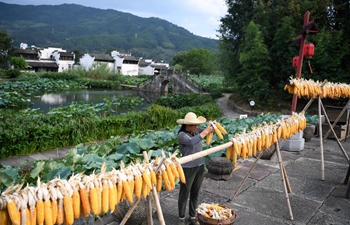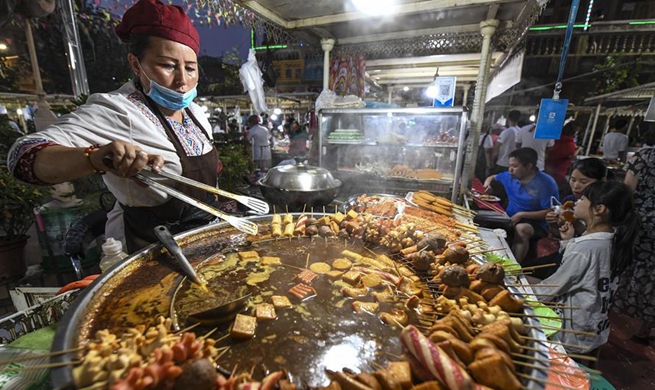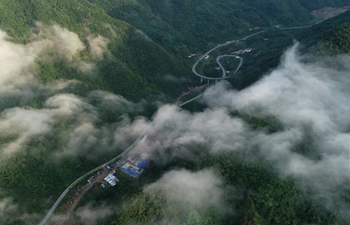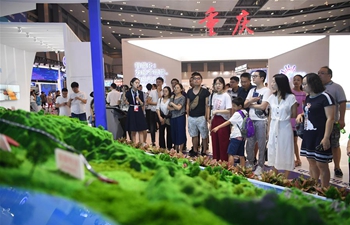NAIROBI, Aug. 30 (Xinhua) -- A drum mixer, a weighing scale and a hammer mill have become common machines on Kenyan livestock farms as hundreds of east African nation farmers seek to cut costs by formulating their own feeds.
The machines are aiding farmers to make their own feeds thus lowering the cost of production by at least 30 percent.
Poultry, dairy and pig keepers top the list of those making their feeds from cheaper imported feed ingredients using the machines.
The ingredients include soya, sunflower and cotton seed cake, fish and bone meal and maize germ.
Medium and large-scale farmers are importing the ingredients from African nations like Uganda, Tanzania and Malawi and as far as China and India.
From the two Asian nations, the farmers are mainly sourcing soya and fishmeal, key protein ingredients.
The rest of the ingredients, in particular cotton and sunflower seed cakes and maize are obtained from Uganda, Tanzania and Malawi.
"I have been able to reduce my cost of production by 30 percent since I started making my own feeds," Nairobi-based poultry farmer Collins Karanja said.
Karanja explained that to make the feeds, one must ensure they have ingredients that provide all nutrients namely carbohydrates, proteins and vitamins.
"I use soya for proteins, maize or maize germ for carbohydrates and I buy vitamins to mix with the two," he said. He noted that fish and bone meal are other sources of proteins but are expensive.
"A kilo of soya currently goes for 60 shillings (0.57 U.S. dollars), which is cheaper than bone or fish meal that costs 1 dollar for a kilo," he said.
Karanja bought the feed-making machines from a dealer in Nairobi's Industrial Area and attended training to get skills on making feeds.
"I keep 500 layers chickens and it was expensive to buy a 70kg bag of feeds at 25 U.S. dollars. I teamed up with 10 other farmers, attended a two-day training and we were good to go," said Karanja, who now passes the skills that include mixing feeds at different stages of growth to other farmers at a fee.
At several dairy farms across the east African nation, the farmers are mainly making dairy meal, a concentrate.
The dairy feed is one of the most expensive in the east African nation, with a 70kg bag going for 30 U.S. dollars.
Peter Odour, an animal health specialist trained at Egerton University, noted that dairy meal is an important feed on a dairy farm because it boosts milk production.
"Normally, a cow is given the meal based on the milk it produces. The higher the milk an animal offers, the more dairy meal it should be fed," he said.
At Osiligi Farm on the outskirts of Nairobi where he is based, Oduor is in charge of formulating dairy meal, a thing that helps them cut costs by up to 40 percent.
"We buy the ingredients that include soya, sunflower cake and maize germ from a dealer in Nairobi and make our own dairy meal," he said, noting the farm has its drum mixer and other machines for making the feeds.
According to him, however, while many farmers are making feeds thanks to cheaper imported ingredients, the process is a science and one must get it right.
"Some farmers with little knowledge try to formulate feeds and end up killing their birds or the birds don't produce eggs in the case of layers," he added.
The quest for cheaper feeds has provided some farmers with business opportunities as they make feeds and sale to others.
"I buy dairy meal for my cows from a neighbor who formulates them and sells at 0.38 U.S. dollars a kilo. The feeds are of good quality because my cow has increased milk production since I started giving them,"said Joshua Kiboi, a farmer in Kiambu.













